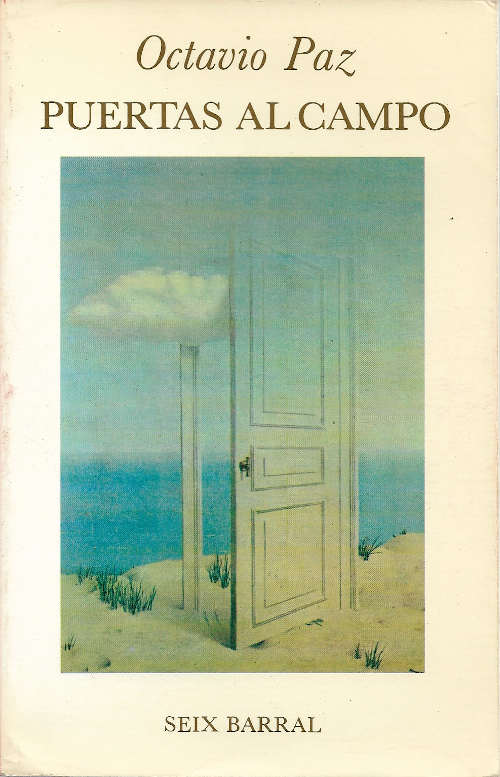
Puertas al campo reúne en su primera parte, junto a una serie de soberbias versiones y análisis de algunas obras de destacados poetas extranjeros -John Donne, Apollinaire, e. e. cummings-, textos acerca de Saint-John Perse, Jorge Guillén, la literatura latinoamericana contemporánea y otros temas que centran la atención del Paz poeta y estudioso de la poesía. La segunda parte del volumen -«Los privilegios de la vista»-, dedicada a las artes plásticas, contiene ensayos que abarcan desde el arte precolombino a la pintura mexicana de nuestro tiempo. En una y otra sección del libro, hallamos confirmadas la asombrosa lucidez del Paz ensayista y su capacidad de «ver» con los ojos de la mente los temas más diversos.
Octavio Paz was born in 1914 in Mexico City. On his father’s side, his grandfather was a prominent liberal intellectual and one of the first authors to write a novel with an expressly Indian theme. Thanks to his grandfather’s extensive library, Paz came into early contact with literature. Like his grandfather, his father was also an active political journalist who, together with other progressive intellectuals, joined the agrarian uprisings led by Emiliano Zapata. Paz is a poet and an essayist. His poetic corpus is nourished by the belief that poetry constitutes “the secret religion of the modern age.” Eliot Weinberger has written that, for Paz, “the revolution of the word is the revolution of the world, and that both cannot exist without the revolution of the body: life as art, a return to the mythic lost unity of thought and body, man and nature, I and the other.” His is a poetry written within the perpetual motion and transparencies of the eternal present tense. Paz’s poetry has been collected in Poemas 1935-1975 (1981) and Collected Poems, 1957-1987 (1987). A remarkable prose stylist, Paz has written a prolific body of essays, including several book-length studies, in poetics, literary and art criticism, as well as on Mexican history, politics and culture.
 €9
€9
Puertas al campo reúne en su primera parte, junto a una serie de soberbias versiones y análisis de algunas obras de destacados poetas extranjeros -John Donne, Apollinaire, e. e. cummings-, textos acerca de Saint-John Perse, Jorge Guillén, la literatura latinoamericana contemporánea y otros temas que centran la atención del Paz poeta y estudioso de la poesía. La segunda parte del volumen -«Los privilegios de la vista»-, dedicada a las artes plásticas, contiene ensayos que abarcan desde el arte precolombino a la pintura mexicana de nuestro tiempo. En una y otra sección del libro, hallamos confirmadas la asombrosa lucidez del Paz ensayista y su capacidad de «ver» con los ojos de la mente los temas más diversos.
Octavio Paz was born in 1914 in Mexico City. On his father’s side, his grandfather was a prominent liberal intellectual and one of the first authors to write a novel with an expressly Indian theme. Thanks to his grandfather’s extensive library, Paz came into early contact with literature. Like his grandfather, his father was also an active political journalist who, together with other progressive intellectuals, joined the agrarian uprisings led by Emiliano Zapata. Paz is a poet and an essayist. His poetic corpus is nourished by the belief that poetry constitutes “the secret religion of the modern age.” Eliot Weinberger has written that, for Paz, “the revolution of the word is the revolution of the world, and that both cannot exist without the revolution of the body: life as art, a return to the mythic lost unity of thought and body, man and nature, I and the other.” His is a poetry written within the perpetual motion and transparencies of the eternal present tense. Paz’s poetry has been collected in Poemas 1935-1975 (1981) and Collected Poems, 1957-1987 (1987). A remarkable prose stylist, Paz has written a prolific body of essays, including several book-length studies, in poetics, literary and art criticism, as well as on Mexican history, politics and culture.